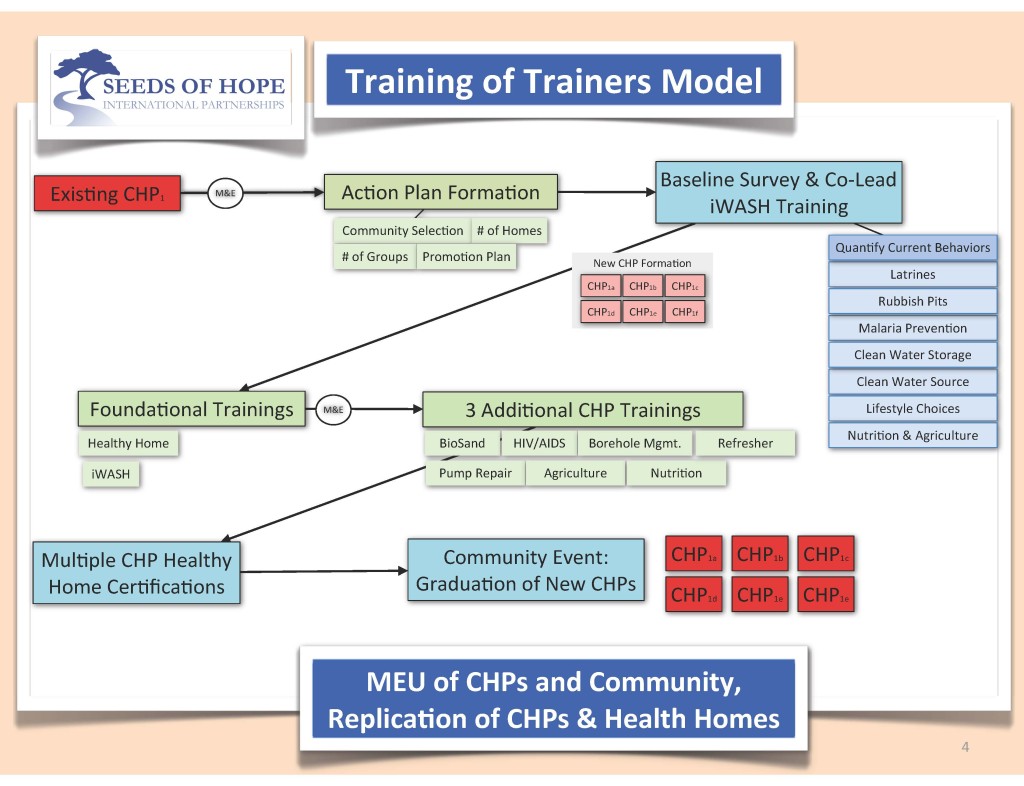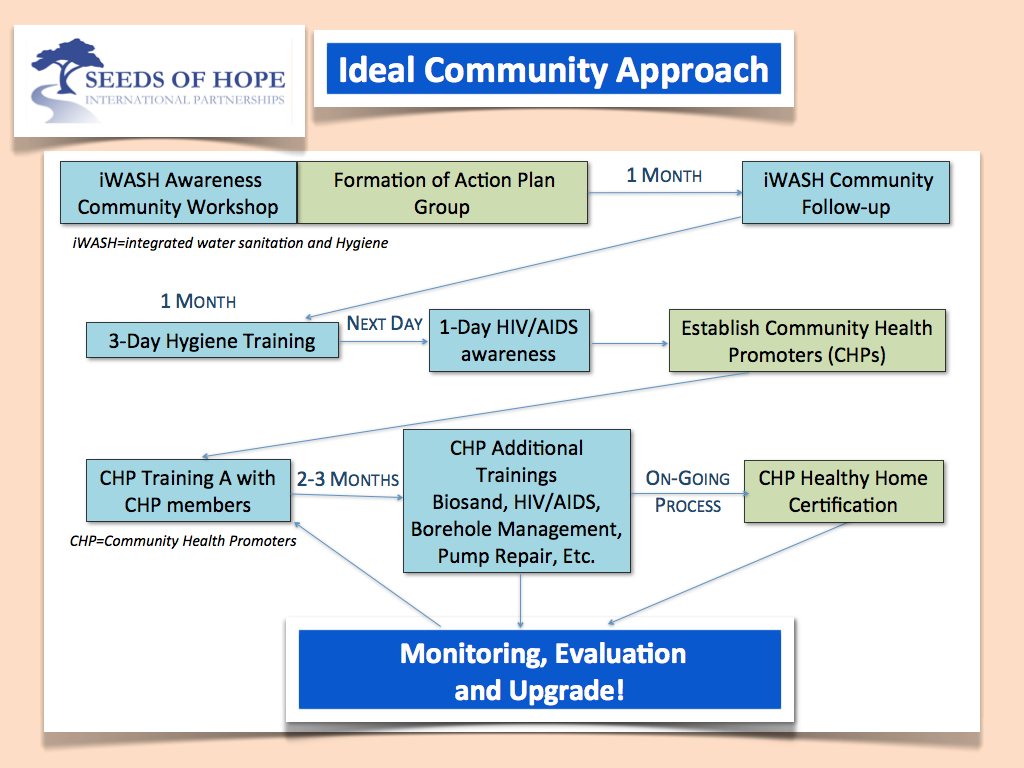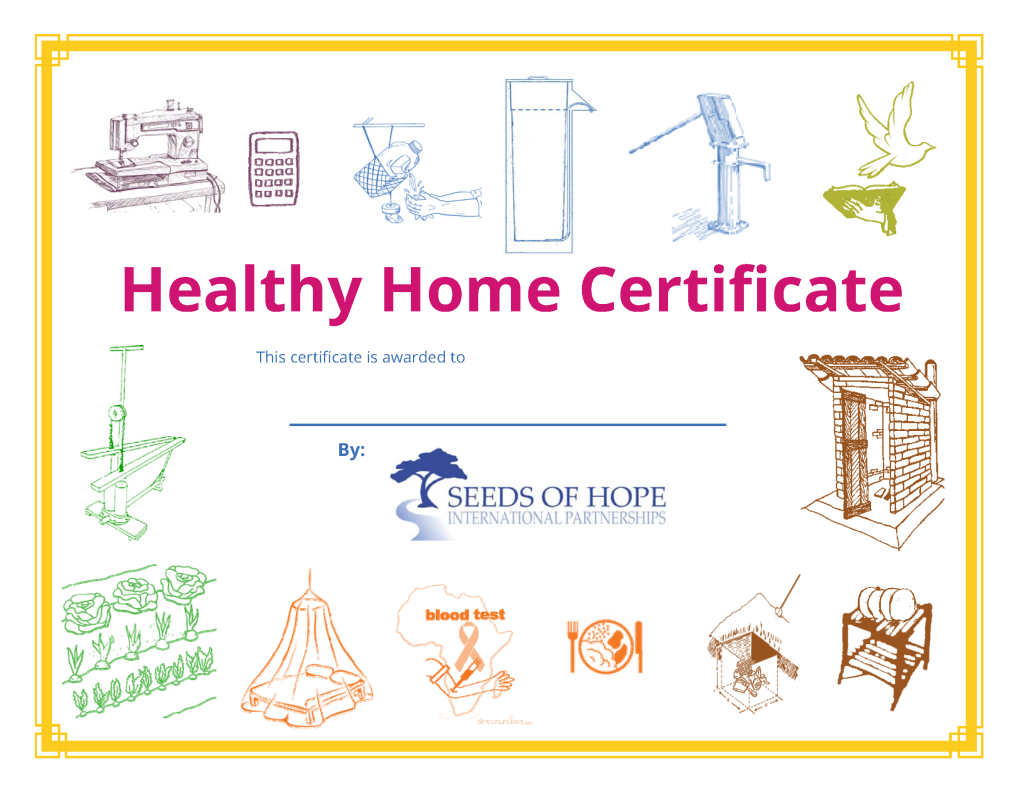![]() Seeds of Hope’s Ideal Community Approach is based on the training, activation, and empowerment of people. SoHIP believes that to be an effective agent of change in their community, people must first learn and consistently proactive healthy behaviors in their own lives and home. Those highly motivated individuals who attend Seeds of Hope trainings can multiply their reach by becoming Community Health Promoters and working with SoHIP staff to earn a Healthy Home Certification.
Seeds of Hope’s Ideal Community Approach is based on the training, activation, and empowerment of people. SoHIP believes that to be an effective agent of change in their community, people must first learn and consistently proactive healthy behaviors in their own lives and home. Those highly motivated individuals who attend Seeds of Hope trainings can multiply their reach by becoming Community Health Promoters and working with SoHIP staff to earn a Healthy Home Certification.
Community Health Promoters
Community Health Promoters (CHPs) are SoHIP’s most effective catalysts for change. These are ordinary, trained and empowered people with the ability to reach the people in their community and build healthy environments. CHPs are trained in: sanitation & hygiene practices & implementation, latrine installation, pump caretaking, borehole management, AID/HIV awareness, biosand filter monitoring, and agriculture. Seeds of Hope has seen the importance of ownership, thus CHPs learn to manage their own environment then work with neighbors and community groups to transform their own areas. This is an effective model because change takes root and grows when it comes from the inside and moves outward, instead of being pressured or brought from outside voices to people inside the community! Once CHPs are well established, they can then choose to be trained how to train others to become CHPs, multiplying their influence and causing healthy practices to spread rapidly.
Healthy Home Certification
A Healthy Home Certification indicates a person’s home is operating with healthy, proactive practices. Meaning all possible interventions are in place and functional; such as: water filtration, latrine access, rubbish pits, malaria prevention, adequate nutrition intake, in-home cleanliness, and sanitation and hygiene habits. The healthy home criteria is tailored to meet me specific demands of each community because each community presents with different needs. Those seeking a Healthy Home Certification are evaluated by Seeds of Hope staff, given feedback and options to resolve problem areas, then re-evaluated and monitored by SoHIP staff and CHPs.



